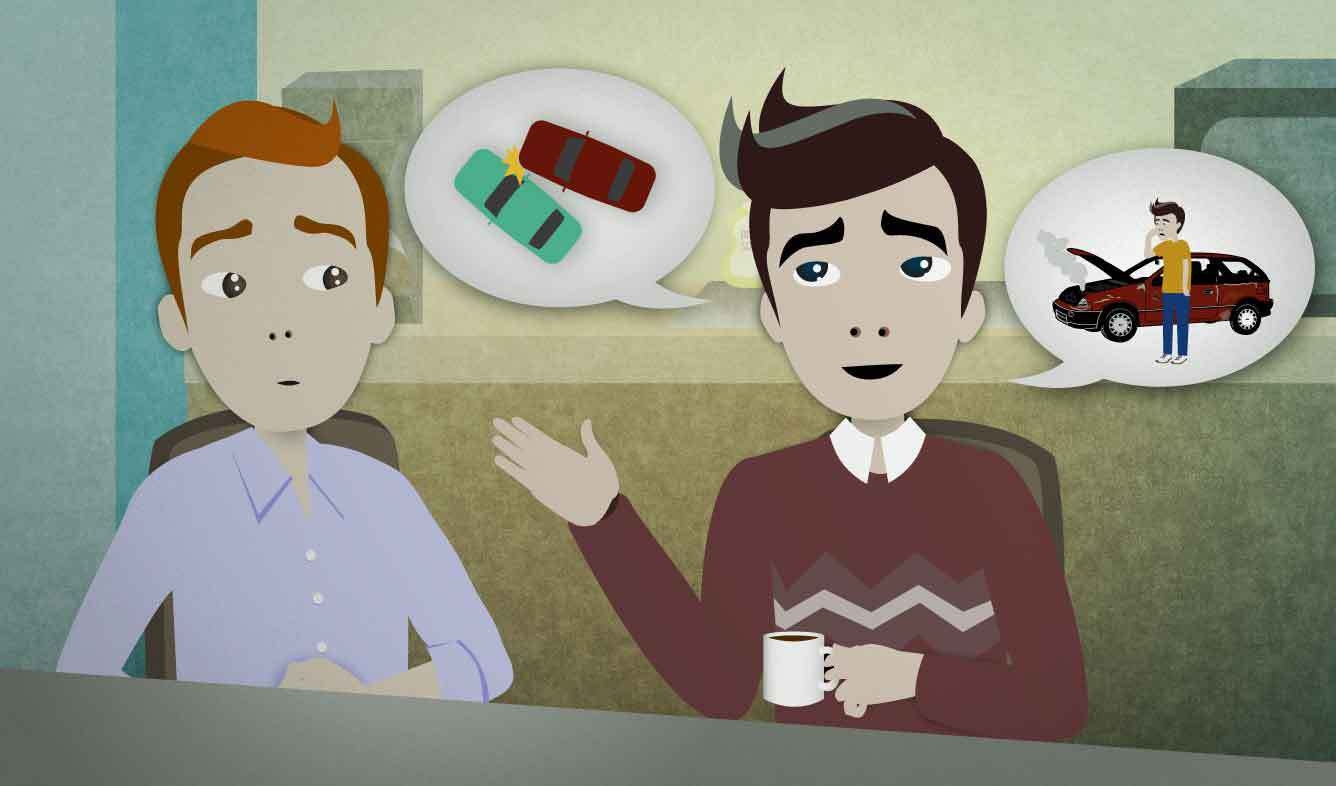“I don't drive recklessly though. I'm just accident-prone.”
You've had a lot of car accidents. You're talking with a friend about all of the accidents that you've gotten into. You explain why they happened.
I don't drive recklessly though. I'm just accident-prone.
Want Video and Sound? Follow us on YouTube

(sentence), though
"Though" is similar to "but" and "however". It is usually used at the end of the sentence in spoken English:
I have a pilot's license. I haven't flown in almost 5 years, though.
In written English, it's more appropriate to use it between clauses:
I have a pilot's license, though I haven't flown in almost 5 years.
"However" can be used in the same way:
I do agree with the Prime Minister on defense, however.
"Though" is more casual than "however", though.
(someone) drives recklessly
"Reckless driving" is a phrase that means driving very unsafely. A reckless driver might do things like:
- drive way too fast
- drive while typing a text message
- drive through a stoplight that's turned red already
You can get a ticket for "reckless driving" if the police catch you doing something dangerous.
You can also say that a person is "reckless" if they do lots of dangerous things, whether in a car or somewhere else:
He was always reckless: drinking, getting into fights, gambling. It's sad what happened to him, but we all saw it coming.
(someone) is accident-prone
When someone tends to have a lot of accidents, you can describe them as "accident-prone":
Yolanda? She's very accident-prone. She's always bumping into things, dropping things, you name it.
Being "accident-prone" is a little different from being "clumsy". A "clumsy" person isn't very good at moving their body.
I could never be a dancer. Way too clumsy.
Someone who is "accident-prone" could have a lot of accidents because they're clumsy, or it could be because they're not careful. Or it could just be bad luck.
